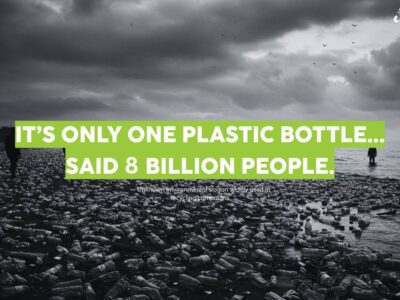More Thoughts on the US-China Climate Announcement
Ann Carlson and I talk with the New York Times on US politics, Chinese implementation, and the potential impact on India.
Ann Carlson and I talked with Edward Wong from the New York Times last week about the US-China Climate Announcement. We repost the Q&A here.
From Edward Wong, NYT: The biggest commitments to come out of President Obama’s recent visit to China involved climate change policy. The leaders of the two nations stood beside each other in Beijing and pledged to curb greenhouse gas emissions, sending the world a powerful message that climate change is important to both men, and that the two countries intend to work together on the issue.
Mr. Obama said the United States would emit 26 percent to 28 percent less carbon dioxide in 2025 than in 2005. President Xi Jinping of China said China would reach a peak in carbon dioxide emissions “around 2030.” And by then, he said, 20 percent of China’s energy would come from sources other than fossil fuels.
Many experts have analyzed China’s promises, trying to determine their feasibility and whether they represent a sincere effort to combat climate change. Less discussed is the impact of the joint announcement on the politics of climate change in the United States and other countries outside China.
Among those who have written on that topic are Ann E. Carlson and Alex Wang, law professors at the University of California, Los Angeles, who study environmental policy and regulations in the United States and China, the leading emitters of greenhouse gases. Together, they responded to questions about the United States-China agreement:
Q. What are the most interesting reactions you’ve seen among United States politicians to the joint announcement on climate change?
A. Two reactions are most relevant. First is incoming Senate majority leader Mitch McConnell’s attempt to denigrate the Chinese commitment. He immediately claimed that China will not have to do anything to cut emissions for 16 years, while the U.S. will face steep cuts in emissions right away. This is a political argument that is clever but disingenuous. Senator McConnell is looking for ways to reclaim an argument opponents of climate regulation have relied on for years: that the U.S. should not cut our carbon emissions as long as the Chinese are refusing to act, because we will be hurt economically.
The U.S.-China agreement severely undercuts that argument. The Chinese can’t stop emissions growth immediately without drastic measures like allowing no increases in driving and no new economic growth unless they cut emissions elsewhere. To stop emissions growth without severely curtailing economic growth, the Chinese will have to improve efficiency dramatically and shift their energy sources away from coal to much cleaner fuels. The agreement also commits China to doubling the proportion of energy it obtains from nonfossil sources by 2030. So it’s simply false to say that the Chinese won’t have to do anything. On the other hand, their commitment — to stop emissions growth by 2030 — is later than the U.S. commitment and expresses an intent to stop growing, not to cut, their emissions. There is certainly an argument for more ambition on both of these points, but Senator McConnell did his best to capitalize on the distinctions between the U.S. and Chinese goals to make them look especially weak.
The second most important reaction comes from Senator Jim Inhofe, the climate-denying senator in line to become chairman of the Senate Environment and Public Works Committee. He has promised to do whatever it takes to prevent President Obama from implementing carbon emissions cuts. The president is using executive authority to cut emissions from power plants, cars and other carbon sources. Without these cuts, the U.S. can’t meet the goals it promised in the U.S.-China agreement. Republicans will try to block the Environmental Protection Agency from adopting and implementing the regulations, either by repealing its authority or indirectly through cutting its budget. It will be tough for Republicans to succeed because the president can veto their efforts as long as he can keep Senate Democrats in line. But that won’t keep Republicans from trying.
Q. Have opinions on President Obama’s climate commitments fallen mostly along party lines?
A Yes, the reactions have been pretty predictable. Republicans in Congress are virtually unified in their opposition to the president’s climate commitments. Only a handful acknowledge that humans are contributing to climate change, let alone that we need to address the problem, and climate deniers are particularly prevalent among the Republican leadership. The Democrats are somewhat less uniform. Virtually every Democrat in Congress believes that climate change is real and that emissions from fossil fuels are a primary cause. But Democrats from coal-producing states like West Virginia and Oklahoma are more skeptical of regulations that would reduce emissions from coal-fired power plants. And a number of Democrats support approving the Keystone pipeline, which would bring oil extracted from Canadian tar sands to the Gulf Coast. Although the president hasn’t indicated whether he’ll approve the pipeline, it’s something of a litmus test for progressive climate policy among many environmentalists.
One interesting question will be the role that climate policy plays in the 2016 election. Many Democratic strategists believe that climate policy could be a “wedge” issue that convinces independent voters to support candidates who are serious about addressing climate change. If these strategists are right, the U.S.-China agreement places the Republican Party in a real bind. But Republican strategists believe that they can frame climate policies as anti-jobs, especially in energy-rich states dependent on coal. That’s why you see House Speaker John Boehner calling the agreement “job-crushing.” If climate change is a significant issue in the 2016 election, whose narrative prevails could really matter in deciding on our next president.
Q. What kinds of reactions are you seeing to the Chinese pledges?
A. On the whole, the reaction to the announcement has been very positive. This is the first time that China has officially announced a goal to peak carbon emissions, and the nonfossil energy goal represents a $2 trillion commitment to cleaner energy, according to one estimate. Supporters believe that the announcement is an important long-term signal that China intends to continue to press for economic transformation — shifting away from heavy industry to high-value-added, low-carbon industries and services. This sort of commitment has all sorts of potential follow-on effects. It reduces the risk for investors in clean energy. It empowers Chinese environmental regulators. It may embolden citizens to protest against local polluters who are now acting against central policies. And in the U.S., this pulls the rug out from under those who have relied on China as an excuse for stalling U.S. action on climate change.
The skeptics have raised a few responses. Some suggest that the target requires no effort from China, which we’ve already discussed. Others have said that this is not a binding agreement and therefore does not require either country to do anything. But, as a high-level expression of political intent, this will influence the direction of economic and environmental reform in China. The U.S. has to rely on political, rather than legal, commitments to reduce carbon emissions, because an international treaty with binding commitments is virtually impossible to achieve. A Republican-led U.S. Senate is unlikely to ratify a global treaty. Others argue that we cannot rely on China to implement its commitments. Implementation remains the most serious challenge, in both countries, but there are good reasons to believe that China is serious about getting its emissions under control and transitioning to cleaner energy.
Q. On the U.S. side, what role will Congress play in formalizing the U.S. pledges?
A. Congress is unlikely to play much of a role at all with respect to the U.S. pledge to cut its emissions, except to try to block implementation of the U.S. emissions cuts. The Obama administration has already steered international talks away from a formal multilateral treaty process, because any kind of treaty would require the approval of the U.S. Senate. It’s clear that the president couldn’t muster the two-thirds majority necessary for ratification.
Instead, countries are entering into negotiations next month in Peru, culminating in Paris in 2015, that are aimed at getting countries to engage in pledges to reduce emissions without a formal treaty. The idea is that countries will commit their political and moral capital in agreeing to cuts and that those commitments are just as likely to be met as formal treaty obligations.
The U.S. has also, however, committed $3 billion to assist developing countries in adapting to climate change, and the president is likely to need congressional approval to meet his pledge. If he does, the going may be tough in Congress, but not impossible. President George W. Bush committed $2 billion in a clean technology fund for developing countries in 2008, and these funds for adaptation are grounded in part in arguments that it is in the U.S.’s self-interest to invest in adaptation to prevent catastrophes that we would spend far more on after the fact. Nevertheless, given the overall mood in Washington, it’s easy to imagine Congress using its spending power to try to derail the president’s $3 billion climate commitment.
Q. What do you say to the argument that China has a deep-seated problem with enforcement of environmental regulations, so it’s very difficult to tell whether it will lower coal consumption to a point where it will meet the “around 2030” goal?
A. China’s environmental enforcement problems in past decades are well documented. But there are reasons to believe that the push for a cleaner, lower-carbon economy can be achieved. First, current climate and energy policies are actually top-level priorities. In the past, rapid development of heavy industry was the top priority, and the weakness of China’s environmental regulation reflected this. These days, Chinese leaders see current environmental goals as deeply intertwined with core priorities of economic transformation, social stability and national strength. So the political will is there in a way it wasn’t before. Second, there is tremendous bottom-up pressure from citizens because of China’s dramatic air pollution problems. Finally, powerful constituencies, including green businesses, are beginning to develop around the shift to nonfossil energy and clean, emerging industries. These companies will become supporters of the push toward a new approach to energy and economic development.
This all said, implementation will be a continuing challenge. Many of the major Chinese industrial enterprises may not cooperate, seeing this new direction as harmful to their interests And, as in the U.S., bureaucrats and politicians with opposing views will resist these efforts at every turn. Nevertheless, we think it’s very possible that the incentives for environmental reform in China are growing to a degree that will overpower the opposition.
Q. Do you think the U.S.-China announcement will catalyze action among other nations? Should the U.S. be putting greater effort into getting other large emitters of greenhouse gases, for example, India, to make pledges?
A. The announcement is a tremendous boost to international climate negotiations. The world simply cannot address climate change without serious action from China and the U.S. These two countries make up nearly half of global emissions. The announcement sets an example for other countries, and helps to shift investment patterns, regulatory commitments and other behavioral changes that are essential to climate change action. Most important, though, the announcement suggests how countries can proceed in a world where a traditional legally binding treaty is difficult, if not impossible, to achieve. Significant progress can be made through engagement with a handful of countries with an outsize impact on climate change — the U.S., China, the E.U., India and a few others. The international negotiations will most likely focus on the creation of a system that facilitates domestic action, fosters a sense of accountability and healthy competition among countries, and supports adaptation in the poorest, most vulnerable nations.
India remains one of the most difficult challenges. Although emissions in China, the U.S. and E.U. still dwarf those in India, India has over a billion people, and almost a third of them live in poverty. India’s government has made clear that economic development — modeled after China’s economic miracle — is its principal aim, with efforts to address climate change far down its agenda. India also possesses vast coal resources. If India develops and uses those resources without controlling carbon emissions, global efforts to contain temperature increases will fail. The challenge, then, is how to help India pursue economic development using clean energy and improved efficiency.
The promise of the U.S.-China agreement is that it demonstrates that each country’s individual circumstances will help dictate its strategy. India, like China, has some of the most polluted cities in the world. Climate change promises to have a disproportionate negative impact on Indian citizens who are vulnerable to floods, drought, excessive temperatures and other potentially catastrophic consequences. Yet India also needs to grow economically. China and the U.S. experience can help demonstrate the kinds of clean energy technology and efficiency measures that might balance India’s economic goals with its environmental ones, but the approach to India remains one of the most daunting climate issues we face.
Reader Comments
One Reply to “More Thoughts on the US-China Climate Announcement”
Comments are closed.







Dear Mr. Wang;
China should not expect a corrupt government agency like the EPA to deliver on Obama’s commitments. This agency is rife with lies, fraud, theft, pornography, misconduct and all manner of deceit.
U.S. EPA officials have been hampering the work of their in-house watchdogs as cases of employee misconduct including theft and pornography continue to hound the agency, according to a new inspector general report.
http://www.eenews.net/stories/1060009702